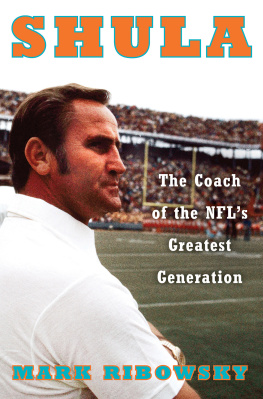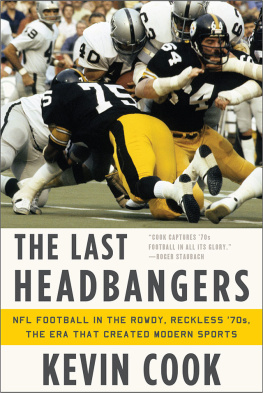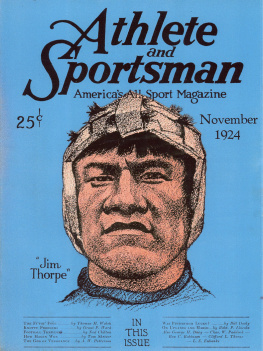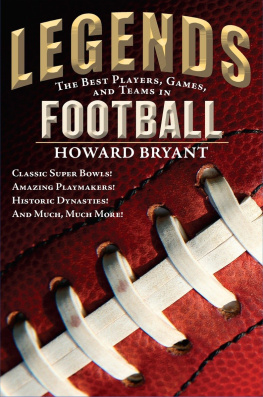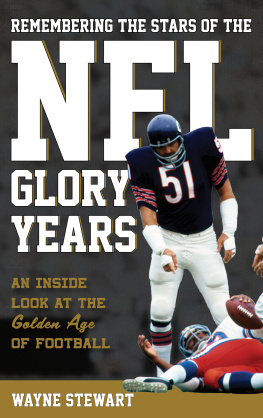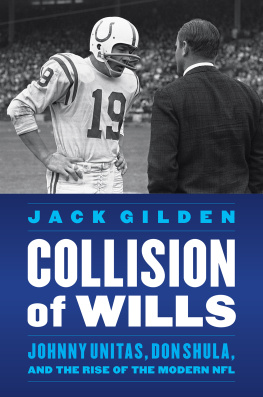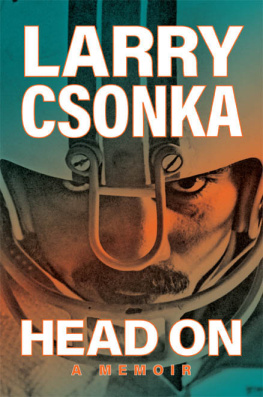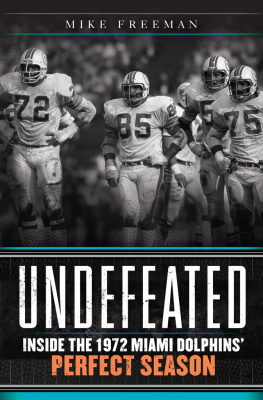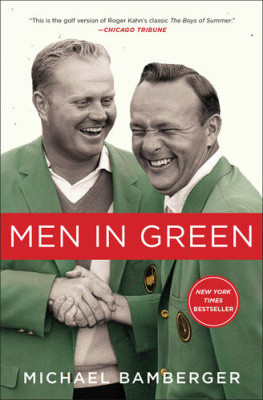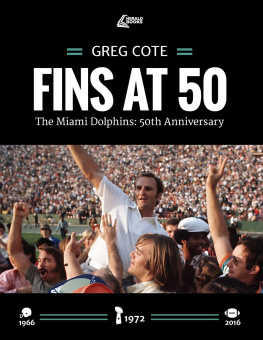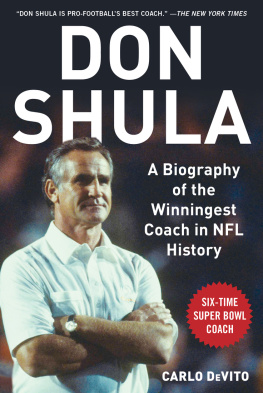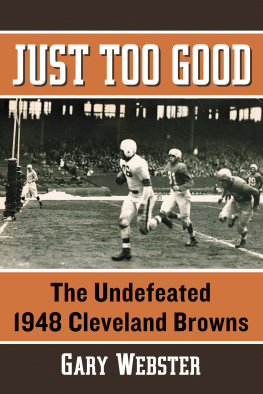Contents
Guide

ALSO BY MARK RIBOWSKY
My Dad, Yogi: A Memoir of Family and Baseball
by Dale Berra with Mark Ribowsky
In the Name of the Father: Family, Football, and the Manning Dynasty
Hank: The Short Life and Long Country Road of Hank Williams
Sweet Dreams and Flying Machines: The Life and Music of James Taylor
Dreams to Remember: Otis Redding, Stax Records,
and the Transformation of Southern Soul
Whiskey Bottles and Brand New Cars:
The Fast Life and Sudden Death of Lynyrd Skynyrd
The Last Cowboy: A Life of Tom Landry
Howard Cosell: The Man, the Myth, and the Transformation of American Sports
Hes a Rebel: Phil SpectorRock and Rolls Legendary Producer
Slick: The Silver and Black Life of Al Davis
Dont Look Back: Satchel Paige in the Shadows of Baseball
The Power and the Darkness: The Life of Josh Gibson in the Shadows of the Game
A Complete History of the Negro Leagues, 1844 to 1955
The Complete History of the Home Run
Crazy and in Charge: The Autobiography of Abe Hirschfeld
by Abraham Hirschfeld with Mark Ribowsky
Eleven Days of Hell: My True Story of Kidnapping, Terror, Torture,
and Historic FBI and KGB Rescue
by Yvonne Bernstein with Mark Ribowsky
The Supremes: A Saga of Motown Dreams, Success, and Betrayal
Signed, Sealed, and Delivered: The Soulful Journey of Stevie Wonder
Aint Too Proud to Beg: The Troubled Lives and Enduring Soul of the Temptations
SHULA
The Coach of the NFLs Greatest Generation
MARK RIBOWSKY

Copyright 2019 by Mark Ribowsky
All rights reserved
First Edition
For information about permission to reproduce selections from this book, write to Permissions, Liveright Publishing Corporation, a division of W. W. Norton & Company, Inc., 500 Fifth Avenue, New York, NY 10110
For information about special discounts for bulk purchases, please contact W. W. Norton Special Sales at specialsales@wwnorton.com or 800-233-4830
Book design by Chris Welch
Production manager: Anna Oler
The Library of Congress has cataloged the printed edition as follows:
Names: Ribowsky, Mark, author.
Title: Shula : the coach of the NFLs greatest generation / Mark Ribowsky.
Description: First edition. | New York : Liveright Publishing Corporation, a division of W. W. Norton & Company, [2019] | Includes bibliographical references and index.
Identifiers: LCCN 2019014727 | ISBN 9781631494604 (hardcover)
Subjects: LCSH: Shula, Don, 1930 | Football coachesUnited StatesBiography. | Miami Dolphins (Football team)History20th century. | Baltimore Colts (Football team)History. | National Football LeagueHistory20th century.
Classification: LCC GV939.S46 R53 2019 | DDC 796.332092 [B]dc23
LC record available at https://lccn.loc.gov/2019014727
ISBN 9781631494611 (eBook)
Liveright Publishing Corporation, 500 Fifth Avenue, New York, N.Y. 10110
www.wwnorton.com
W. W. Norton & Company Ltd., 15 Carlisle Street, London W1D 3BS
CONTENTS
: Shula Pride
Shula Pride
A long-ago interlude that today feels oracular was the brief moment in history when Donald Shula bisected with Donald Trump. It happened in 1983. That year, the boyish, bumptious Trump had bought into the last challenger to the NFLs hegemony, the United States Football League, as owner of the New Jersey Generals. He had Herschel Walker, arguably the best runner in football, and wanted unarguably the best coach in football. Shula, who knew little of Trump, listened. When he saw more of who Trump was, and the bull he slung, he stopped listening and bolted for the door. Trump naturally blamed Shula for the crime of... greed.
Trumps league went bust. His future bids to become an NFL owner were summarily dismissed. Shulawho is today nearing 90 and has never declared bankruptcy, and whose fortune of over $30 million is real and a geographic landmark. Moral: Shula was a very winning coach, and a very rich one, because he could take the measure of men he respected, and quickly discard those he didnt.
Shula coached in some of the most memorable and important games in football history, and in keeping with the yin and yang of a long career, won some, but never enough. He seemed to suffer years of bedevilment, as if in a cosmic bargain for one single season of unprecedented success. That, his perfect 170 championship season of 1972, was itself seemingly earned by his ineffable defeat four years earlier to Joe Namaths New York Jets, when Shulas mighty Baltimore Colts came in as 18-point favorites and left as losers of the biggest upset in sports history. No mere career coach could have been on the sidelines for two such titanic events, which can fairly be discussed as markers of cultural history. The Jets loss carved out pro footballs modern identity and threatened to leave Shula by the side of the road, in shame. For him, no win could ever expunge its sour taste.
But even after those two contrasting events were cemented in history, he had plenty left in the tank. Invested with a nail-hard, blue-collar Midwestern ethos and sensibility, he lengthened his shadow, always chasing the elusive return to glory. In that sense, he never changed. He took crap from nobody, ruled with a closed fist and deft, scientific methods gleaned from his mentor, Paul Brown. When he was unable to win, and had taken enough crap for it within his own league, he made a calculated decision to join the league he had, ironically, proved wasnt inferior by losing to it. He took over the Miami Dolphins when they were merged into the NFL in 1970 and immediately built them into a milieu, a fan base, and a corporate turnkey operation. Over the next quarter century, he would keep whittling his gnarled but handsome Teutonic face (actually Hungarian) into the football infrastructure, always defined by the perfect season and the repeat title a year later. He also led the Dolphins to two more Super Bowls, losing both, but for an unnaturally extended period of time, he seemed immune to the consequences of big-game defeat because he always won enough.
He was more than just a coach. Though, technically, he was born just a tad late to be a member of it, he was embraced as a pillar of the generation that journalist Tom Brokaw would retroactively celebrate in the 1990s as the Greatest Generation. From the glory of winning a world war and the passage of civil rights legislation, to the dishonor of undeclared wars of choice and the perpetuation of Jim Crow, Shula stood shoulder to shoulder with men both famous and infamous: on the one hand, a president who inspired a nation into space, and on the other, a demagogic senator shrieking about a red menace, a Southern governor who stood in the door of a university to stop black students from entering, and a president who lurched from landslide victor to unindicted co-conspirator. Shula has outlived them all, and has lived long enough to see the election of the very man he distrusted and foresaw as a destructive force in 1983.
In fact, men like Shula make it easier to cope with men like George Wallace, Richard Nixon, and Donald Trump. Not incidental to his strengths as a coach, he was a first-generation American, like Vince Lombardi the son of immigrants who, in their day, were reviled and scapegoated every bit as much as latter-day bigots have done to people of color. It was the qualities handed down to him by hardier men than most that took Shula into the fold of history occupied by Brown, George Halas, Lombardi, and Tom Landry, sturdy men who took pro football from a ragtag circus show into a respectable profession, and incidentally into a shiny but increasingly crass and soulless corporate megalith. He was never a Lombardi, and he knew it; indeed, like Tom Landry, his defeats at the hands of Lombardi determined the latters legacy. Almost forgotten now is that, in the early and mid-60s, any one of that holy trinity could have, by winning at the summit, claimed immortality.

